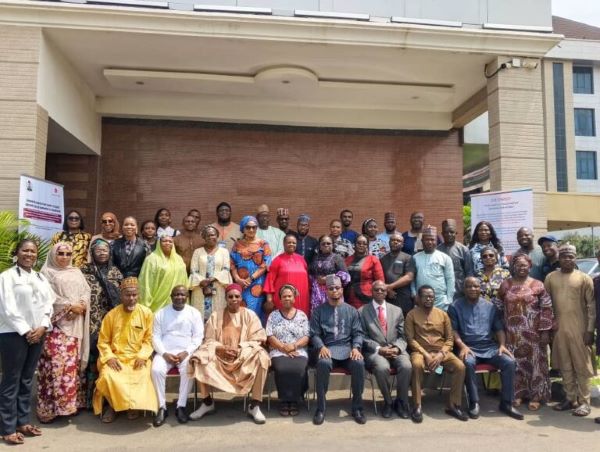EngenderHealth, a leading global health organisation, has partnered with various stakeholders to expand access to the Hormonal Intrauterine Device (HIUD) in Kebbi and Plateau states.
Dr Kabiru Atta, EngenderHealth’s Country Representative, shared the success of the HIUD scale-up project during a national dissemination meeting in Abuja on Thursday.
He said the project, supported by the CHAI Catalytic Opportunity Fund (CHAI-COF) with funding from UKID, had achieved more than 10,000 Couple Years of Protection (CYP) during its 11-month duration.
He added that, with support from the Federal Ministry of Health and Social Welfare, Rotary International, and other partners, more than 2,000 HIUDs had been distributed to healthcare facilities in both states.
“In addition to the distribution of commodities, 46 master trainers were trained, leading to the training of 224 health workers across secondary healthcare facilities and high-volume primary healthcare centres in Kebbi and Plateau states.
“After these trainings, the next critical need was commodities, and the Federal Ministry of Health, our key partner, played a vital role.
“They ensured a steady supply of over 2,000 hormonal IUDs to the facilities, with additional supplies from Rotary International.
“By combining these trainings and the provision of commodities, we were able to achieve more than 10,000 Couple Years of Protection in both Plateau and Kebbi states, helping women safeguard against unwanted pregnancies,” he said.
He emphasised that these efforts helped reach the 10,000 CYP milestone, providing women in both states with greater access to family planning options.
“In terms of sustainability, EngenderHealth also supported state governments in budgeting for family planning commodities.
“Plateau State allocated N23 million for procurement, while Kebbi State allocated N300 million.
“Kebbi’s government is also awaiting approval for an additional N190 million for procurement.”
Dr Nicholas Baamlong, Plateau State Commissioner of Health, stated that the HIUD project had significantly strengthened the capacity of health workers to deliver reproductive health services across all Local Government Areas in the state.
Represented by Dr Mafwalal Bunah-Masok, Director of Public Health at the Plateau State Ministry of Health, Baamlong reaffirmed the government’s commitment to sustaining the project and maximising its long-term impact.
“Building the capacity of health workers ensures the continuity of services. With trained personnel in place, the government’s role is to continue supplying the necessary commodities to keep service delivery going,” he said.
Similarly, Yunusa Musa-Ismail, Kebbi State Commissioner of Health, noted that the project had helped reduce unplanned pregnancies, decreased maternal mortality, and improved women’s health outcomes in the state.
“Many of our women have truly benefited from this programme.
“Before it started, unplanned pregnancies were common and led to the loss of lives. But now, with widespread awareness of HIUD, couples are embracing family planning with confidence,” he said.
Dr Mohammed Abdulkadir, Deputy Sexual and Reproductive Health Desk Officer at the National Primary Healthcare Development Agency, reiterated their commitment to ensuring family planning commodities remain accessible at health facilities.
Mr Emmanuel Ajah, Country Director of MSI Nigeria Reproductive Choices, represented by Moses Odenyi, emphasised the importance of ensuring that women can access family planning options and make informed choices about their reproductive health.
The dissemination meeting was organised by the Federal Ministry of Health and Social Welfare, in collaboration with the Ministries of Health in Kebbi and Plateau States and EngenderHealth.
By Justina Auta


